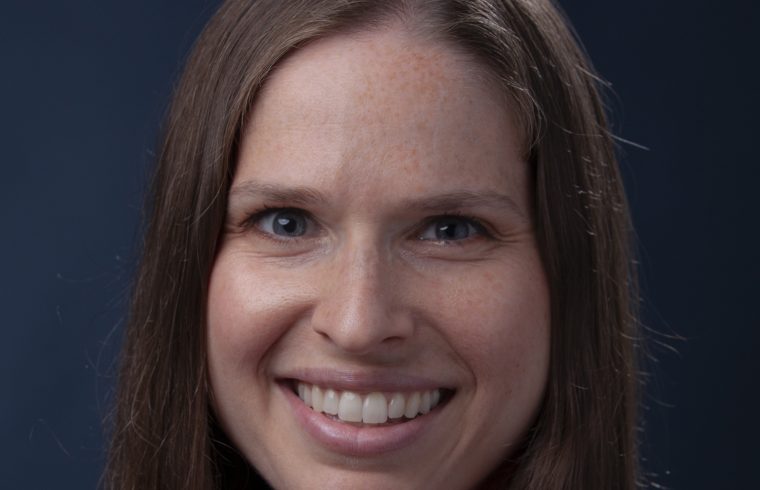A discussion Wednesday evening between journalist Bob Woodward and the two New York Times reporters who uncovered the Harvey Weinstein sex scandal turned “incredibly uncomfortable” when Woodward repeatedly interrupted them and questioned whether their sources were credible, audience members said.
The packed event, held at the Sixth and I synagogue in Washington, was a conversation between Woodward and Jodi Kantor and Megan Twohey about their new book, “She Said,” which delves into how they broke their October 2017 story detailing decades of sex accusations against film mogul Weinstein, who has denied all allegations of nonconsensual sex. Kantor and Twohey’s reporting helped unleash the #MeToo movement, a global reckoning of sexual harassment and assault.
Those who attended Wednesday’s event said they were stunned by the way Woodward, 76, moderated — which included asking Kantor and Twohey if they thought any of their sources had not been telling the truth and accusing them of dodging questions when they told him that assault and harassment is about power, not sex, as he speculated it was.
At one point, said audience member Anna Kain, Woodward interrupted the two so many times that someone attending yelled “Let them finish!” prompting cheers from others.
“I was not expecting it to take the turn it took,” Kain, 30, a Washington resident who works in government affairs, told NBC News.
“It was an example of well-intentioned questions from someone everyone respects, but without any forethought to the nuances and complexities surrounding the dynamics that allowed what their reporting uncovered to persist in the first place.”
Woodward was ripped on social media for how he handled the discussion. Recode co-founder and NBC News/MSNBC contributor Kara Swisher, who attended, tweeted that Woodward was “blowing this interview.”
“Interruptive, not focused on the women who were victimized by Harvey Weinstein and weirdly obsessed with that creep, it’s an exercise in how not to interview,” she wrote.
His line of question prompted numerous people to walk out of the event. Others booed and heckled him.
“It was almost like it was just this collective awful experience that we were all suffering through while also trying to listen to the really intelligent and knowledgeable things that Kantor and Twohey were saying.”
“It was almost like it was just this collective awful experience that we were all suffering through while also trying to listen to the really intelligent and knowledgeable things that Kantor and Twohey were saying,” Kain said. “The whole thing was incredibly uncomfortable.”
Neither Woodward’s representatives nor the Washington Post, where Woodward is an associate editor, responded to a request for comment from NBC News. In a phone interview with the New York Post, Woodward said Kantor and Twohey thanked him for his “fabulous” questions after the event and defended the way he moderated.
“All I did was praise the book as a real handbook to investigative reporting and actually a masterpiece, and I asked questions about it,” he told the paper.
But many in attendance disagreed. Robyn Swirling, a rape survivor and the founder of Works in Progress, a nonprofit that addresses workplace sexual harassment, described in a series of tweets how she had been hesitant to go to the event, but said she went because she was eager to hear the reporters speak. She did not expect the questions that Woodward posed.
“While @realBobWoodward is undoubtedly an expert on how one builds an investigative story, he could not have been more ill equipped for this particular conversation about #metoo. His questions and interjections made clear he doesn’t understand the first thing about rape culture,” she tweeted.
Swirling told NBC News that at one point Woodward asked Kantor and Twohey if information provided by Christine Blasey Ford, the woman who publicly testified that she had been sexually assaulted by Supreme Court Justice Brett Kavanaugh when they were teenagers, was credible enough to be published by the Times, given the imprecision in her memory surrounding the alleged assault.
“That question in particular made me utterly furious for a reason that Jodi Kantor articulated quite clearly, which is that holes in somebody’s memory is typically a sign that somebody is quite credible. We know that people don’t remember every single detail and we know that trauma messes with our brains and bodies,” said Swirling — who during the Kavanaugh hearings confronted Sen. Lindsey Graham outside of a Senate elevator when he made the same argument and told him that she did not recall the exact date of her rape. “It was such an indicator of his utter lack of knowledge around how these things work.”
In a statement to NBC News, Kantor and Twohey did not directly address the criticism of Woodward, but said they valued audience questions.
“We’re grateful to all the moderators — Bob Woodward, Katie Couric, America Ferrera and many others — who have agreed to join us onstage. We welcome all questions, from them and especially from the audience, because each one is an opportunity to relate the wrenching decisions that many of our sources had to make and grapple with MeToo as an example and test of social change in our time.”
The synagogue that hosted the event declined to comment.
Swirling, 33, suggested Woodward, the winner of two Pulitzers, stick to what he’s best known for.
“For Bob Woodward to talk about investigative journalism? Great,” she said. “But for Bob Woodward to talk about the dynamics of sexual violence and the MeToo movement? Not great.”












